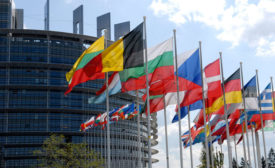Home » Keywords: » etui
Items Tagged with 'etui'
ARTICLES
Trade union blames lobbying efforts by industry
Read More
Report from Europe
Move to ID endocrine disruptors blocked by EU officials, industry lobbyists
June 10, 2015
Become a Leader in Safety Culture
Build your knowledge with ISHN, covering key safety, health and industrial hygiene news, products, and trends.
JOIN TODAYCopyright ©2024. All Rights Reserved BNP Media.
Design, CMS, Hosting & Web Development :: ePublishing


